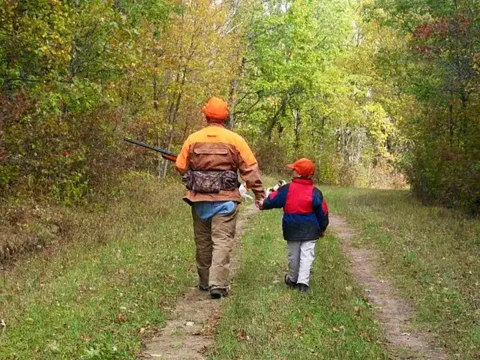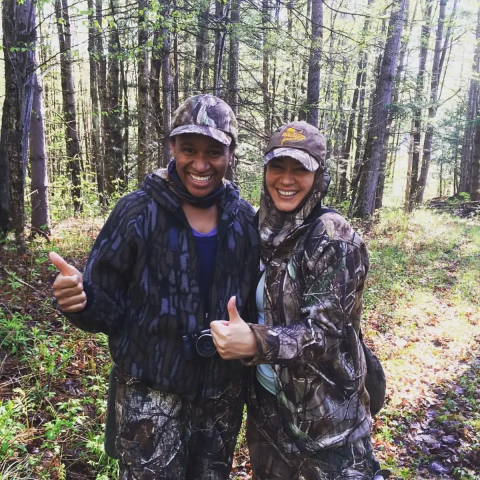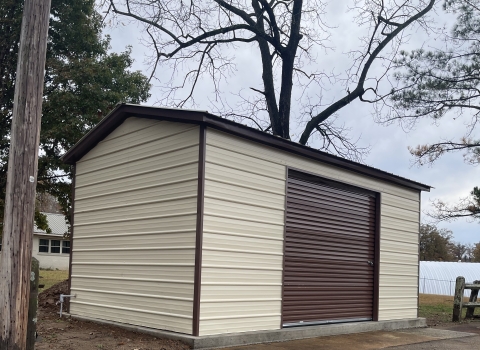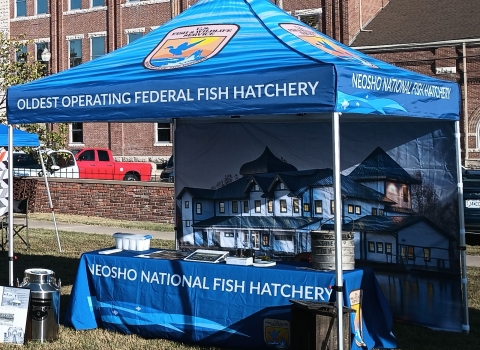Let’s start with the mission of the Service: working with others to conserve, enhance, and protect fish, wildlife, plants, and their habitats for the continuing benefit of the American people. A key component enabling the Service to carry out their mission is conserving and enhancing habitat, managed under the National Wildlife Refuge System. The purchase of federal duck stamps, required by all waterfowl hunters, provides the funding needed to conserve new lands, enhancing opportunities for outdoor activities where people can connect with nature.
Outdoor opportunities, including regulated hunting, are among the benefits people enjoy through the work of federal and state partnerships. For many, hunting is a family activity that transcends generations. Many feel hunting not only teaches the value and importance of wildlife conservation, but teaches imperative life lessons such as patience, respect, solitude, and self-awareness.
Scott Kahan, Regional Chief of the National Wildlife Refuge System, for example, feels hunting is an important way to reconnect with nature and spend quality time with his two sons. He writes, “I will cherish the opportunity to get out in the woods to hunt with my sons and reconnect with those things that are truly important to me.”
So how do hunters contribute to the Service’s mission to conserve, enhance, and protect wildlife? First, biologists study and monitor the populations of wildlife species that are hunted to ensure populations are sustainable and healthy, while law enforcement officers ensure that regulations are being followed by hunters. In some areas, populations of game species can become overabundant, limiting the amount of suitable habitat available for other wildlife. In these situations, hunting contributes to the conservation, enhancement, and longevity of habitat for all wildlife through the regulated take of an overabundant species.
In addition to conservation benefits, hunting is a sustainable way to provide food for your family. Alternatively, if you enjoy hunting and have game meat to share, you can supply nutritious food for over 200 people by donating a single deer! Programs such as “Hunters Helping the Hungry” in New Jersey and “Hunters Sharing the Harvest” in Pennsylvania, allow hunters to donate their harvest to help feed those in need. Even if you are unsuccessful in harvesting a deer, you still had the opportunity to enjoy the outdoors, spend time with family and friends, and participate in a wildlife-dependent activity!
Are you interested in learning how to hunt? To obtain a hunting license, a prospective hunter must participate in and pass a hunter’s education course. These courses are funded by the Service through the Wildlife and Sport Fish Restoration program and are carried out by state agencies, and are designed to teach students to be safe, responsible, and conservation-minded hunters. Many programs are specifically designed for youth hunters, such as the Pennsylvania Junior Pheasant Hunt Program, where young hunters are guided by an experienced mentor throughout the hunt.
For experienced hunters who wish to expand their hunting knowledge, many states offer advanced hunting courses. For example, Vermont offers advanced hunting courses focusing on hunting Vermont black bears, white-tailed deer tracking and processing, and small game hunting with dogs.
Click here to learn more about hunting on national wildlife refuges.





